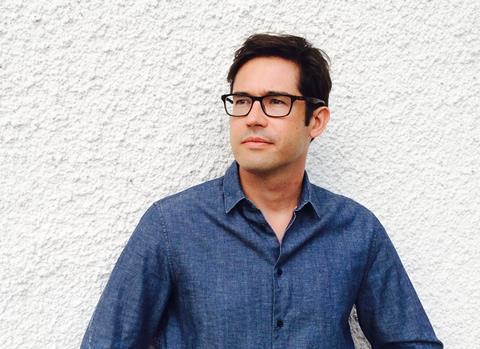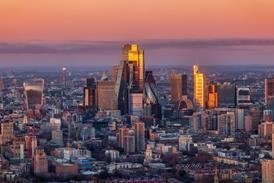Ben Flatman argues it’s time for the UK to face up to its own devastating history of hatred and prejudice

There have been a number of recent criticisms of the revised UK Holocaust Memorial proposal, which is currently in for planning with Westminster, designed by Adjaye Associates, Ron Arad Architects and Gustafson, Porter & Bowman. These have focused mainly on the size of the above-ground structure and the impact on Victoria Tower Gardens.
At the moment we seem to be getting a hybrid building/sculpture that wants to be a combination of Paris’ Memorial to the Martyrs of the Deportation and the Washington Holocaust Memorial Museum. The conflicting requirements of monument and what David Cameron described as a “world-class learning centre” don’t seem well suited to the cramped site.
Meanwhile, recent events have starkly highlighted a disturbing level of anti-semitism in British politics. The hounding of Luciana Berger from the Labour Party, while the leadership seemingly just stood by and watched, would surely mark a low point in post-war British politics, were it not just one case among many calamities currently besetting our public life. Berger had warned in September last year that “moderate Jewish activists or councillors are being made to feel there’s no place in the party for us anymore”. This was hardly surprising when the leader had previously felt at liberty to defend blatantly anti-semitic graffiti and single out Zionists (by which he meant British Jews) for their inability to “understand English irony”.
>> Also read: Unesco demands Adjaye’s Holocaust Memorial be canned
>> Also read: Shortlisted Holocaust Memorial designs revealed
It is therefore entirely understandable that many would argue that a British Holocaust memorial is more urgently needed than ever. However, the arguments against the memorial don’t just relate to its location and confused design. According to its official mission statement, the proposed memorial is intended to reaffirm Britain’s commitment “to stand up against anti-semitism, prejudice and hatred in all its forms”. But, by choosing to focus on the genocide perpetrated by the Nazis and their many willing accomplices across continental Europe, the monument risks deflecting attention from Britain’s own deeply disturbing track record of prejudice and intolerance.
The memorial’s backers promise that it will “set the Holocaust within the British narrative: historically, politically and culturally… addressing the complexities of Britain’s ambiguous responses to the Holocaust”. But the UK’s ambiguous response to the Holocaust is rooted in its wilful refusal to confront its own history of legitimising hatred.
There is a real danger that this memorial perpetuates our national narrative that these things were always done by someone else, and that while perhaps we could have done more to help the Jews, the British would never countenance such atrocities themselves. If the purpose of the memorial is to act as a universal warning against hatred and the breakdown of basic human morality, then why not confront Britain’s own failings head-on? It is not as if there aren’t ample lessons to be drawn from our national story.
The very concepts of race that underpinned the Holocaust, were created within the cauldron of colonialism and slavery. Comparing historical atrocities such as the Holocaust and the transatlantic slave trade is deeply contentious. I am not suggesting there is a direct equivalence, but it would be untrue to claim they are not connected. How else could systems such as slavery and colonialism be justified than by developing an ideology of racial inferiority that dehumanised the populations of entire continents and legitimised their brutalisation and even total eradication.
Britain used such ideas to justify the subjugation and (to varying degrees) the violent repression of the native peoples it colonised across the globe. By the late 19th century these malign constructs were deeply ingrained into British views of how the world was ordered. Arguably they still persist. New research is only recently bringing to light the extent to which the British colonial apparatus in Australia carried out a policy of widespread slaughter against the aboriginal peoples there. This history is barely discussed in Australia itself, let alone in Britain.
While the Nazis sought a rapid, systematic extermination of the Jews, many in 19th- and early 20th-century Britain also envisaged Caucasians eventually replacing “inferior races” across large parts of the world, only at a slower pace. Different means, but disturbingly similar ends were envisaged by Nazis and many of those at the forefront of British colonialism.
It does not diminish Churchill’s achievements in confronting Nazism to remind ourselves that he was himself a long-time exponent of British imperial expansion, who advocated the brutal “pacification” of colonised people, including gassing, and predicted the “Aryan stock is bound to triumph”. This is the “global Britain” we seem unable to confront, and which goes a long way to explaining the significant number of Nazi sympathisers in 1930s Britain.
Perhaps the UK memorial will succeed in making these connections between the Holocaust and Britain’s own history and culture. Those behind the project certainly seem to want to draw out the universal significance of what the Nazis and their allies perpetrated. But it’s a big and challenging brief – maybe too big for Victoria Tower Gardens. Perhaps the UK Holocaust memorial actually requires a more acute focus on anti-semitism, which might produce a more appropriate response to the site.
Meanwhile, Britain urgently needs a national conversation about its wider past, and what sort of country it wants to be in the future. Who and what we memorialise should be an important part of this debate because the omissions among what we commemorate also say a lot about who we are. Perhaps we should be asking where is the memorial to the victims of Britain’s own closeted history of hatred and prejudice?
















15 Readers' comments